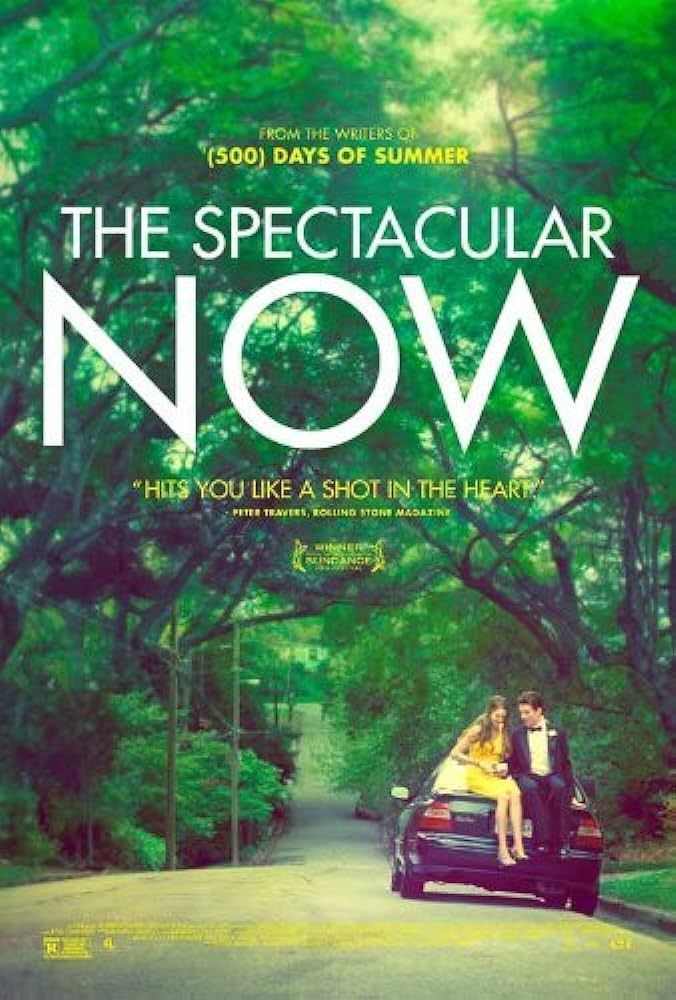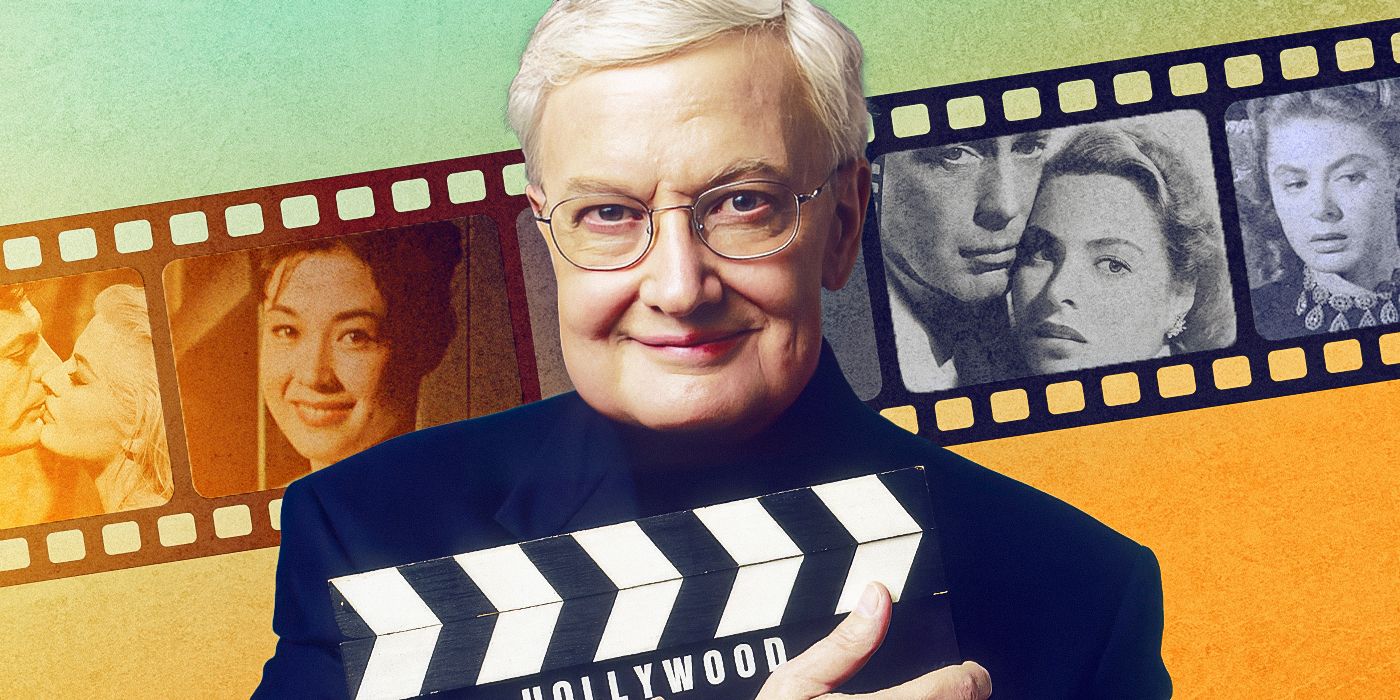The Big Picture
- The Spectacular Now is a realistic and poignant coming-of-age film that tackles difficult topics without being schmaltzy or cheap.
- The film paved the way for a more thoughtful approach to the genre and avoided the pitfalls of the YA book adaptation renaissance.
- Roger Ebert saw the greatness in the film's attention to detail, honest portrayal of growing up, and its ability to universalize and empathize without being overly sentimental.
Few films of the past twenty years have nailed the delicate balance of realism and melodrama that comes with the coming-of-age genre so perfectly as 2013's The Spectacular Now. The late great Roger Ebert acknowledged this in his review of the film, awarding it his famous and highest rating of four stars, making it the last film to receive such an honor from arguably the most influential film critic of the past fifty years. Ebert gave many controversial and surprising films four stars, but for those who have seen the movie, it won't come as a shock that it was so highly-regarded due to its deep tenderness and empathy for its characters without coming off as schmaltzy or cheap. The Spectacular Now elegantly addresses difficult topics in a nuanced and organic way, including alcoholism, familial trauma, depression, abuse, and the intensity of young love.
It's utterly refreshing that a coming-of-age film that came out in the throes of the YA book adaptation renaissance avoids all the trappings that have since plagued most of the movies that tackle similar themes. While films like Lady Bird, Mid90s, and 20th Century Women, all of which came out several years later, would introduce indie film sensibilities to the coming-of-age genre, The Spectacular Now paved the way for a more thoughtful approach to depicting the travails of growing up.

The Spectacular Now (2013)
A hard-partying high school senior's philosophy on life changes when he meets the not-so-typical "nice girl."
- Release Date
- August 2, 2013
- Director
- James Ponsoldt
- Cast
- Shailene Woodley , Mary Elizabeth Winstead , Miles Teller , Brie Larson , Jennifer Jason Leigh , Bob Odenkirk
- Runtime
- 95
- Main Genre
- Comedy
- Writers
- Scott Neustadter , Michael H. Weber , Tim Tharp
Roger Ebert Saw the Greatness in 'The Spectacular Now'
Roger Ebert began his The Spectacular Now review with his signature style of getting straight to the point, emphasizing what made this film a movie worth writing about in comparison to other films. This was a great talent of Ebert's, who wrote about every film as if it was the film to write about, whether what he had to say was positive or negative. The Spectacular Now garnered specific praise from Roger for its naturalistic depiction and honest portrayal of two eighteen-year-olds who are not "crippled by irony" with sex scenes that are "treated cheaply". Ebert has several lines in this review that remind the reader why he was such an important film critic. He had a way of articulating what made a film great in such a succinct manner. When writing about a movie that he loved, he wrote as if it was something wonderful that had happened to him, personalizing it and making the reader wish that it had happened to them. When reading a four-star review by Roger Ebert, you want to watch the same movie he watched in the same way he watched it, experiencing and feeling everything he did. This is rarely the case, unfortunately, as no two people will watch a film the same way.
What Roger Ebert saw in The Spectacular Now was undeniably its attention to details that matter and the way in which it takes seriously the very necessary and painful process of growing up. In the case of Sutter and Aimee, (played by Miles Teller and Shailene Woodley), that process is extraordinarily painful, but the film does an excellent job of never exploiting their pain to induce sorrow or pity in the viewer. Sutter's plight is something that is unfortunately all too familiar for those of any age.
His inability to feel lovable and his belief in his own incapability of giving love cuts to the heart in what is perhaps the most universal of all human fears. Aimee, on the other hand, is ironically the more confident of the two. She knows that she is capable of loving, even if her confidence in her own desirability is frequently shaken. The mission statement of The Spectacular Now is near-perfectly encapsulated, naturally and poignantly so in the most heart-wrenching five minutes of the film, in which Aimee tells Sutter for the first time that she loves him, to which he responds "No you don't" and attempts to sabotage their whole relationship. The drama in the film springs forth organically from the characters. The Spectacular Now doesn't feel written, it feels observed.
Roger Ebert Was Historically Harsh Toward Coming-of-Age Movies
There is something very poetic about Ebert's last four-star review going to a coming-of-age film. Historically, he wasn't nearly as enthusiastic about many classics in the genre as other critics and audience members. There are exceptions to the rule, such as The Graduate, American Graffiti, and Y tu mamá también, but these films in particular all had much more critical clout than the average John Hughes movie. Other classics that seem like obvious candidates for his highest rating, such as Dazed and Confused, The Breakfast Club, and Rushmore all received three stars or lower. It was always notoriously hard to pin down which way Ebert's reviews would lean, but it's undoubtedly sweet that he ended his lukewarm relationship with the coming-of-age genre by championing a film that still does not receive much recognition.
All the movies mentioned above, and many others, are often quoted as quintessential films about growing up. However, The Spectacular Now goes deeper than these films by addressing that a big part of growing up is realizing the inevitability that you will inherit a significant amount of baggage from your parents, that they inherited from their parents before them, and so on. The film tries to reconcile this fact with the idea that being a teenager is also supposed to be the most carefree time of one's life. Herein lies the tension of the film, and herein lies its wisdom — a wisdom not commonly found in the genre.
'The Spectacular Now' Is Not Another Teen Movie
In Sutter's character, The Spectacular Now explores generational trauma and the fear of carrying it on before the term was even widely known. The film never treats its characters like children, or even like adults cosplaying as teenagers. Instead, Sutter and Aimee are fully realized individuals who just happen to be teenagers. They have all the same fears, desires, and many of the same problems as many of us. It's risky to make a film centered around a burgeoning teenage alcoholic, but The Spectacular Now does so without romanticizing it.
The film isn't about some external force that is consuming Sutter but is instead about his fear and distrust of himself. Alcohol isn't the enemy, it's the balm he slaps on to be what he perceives as his best self. What could possibly be truer and more mature than that? Roger Ebert recognized the very real and true humanity in The Spectacular Now and how it elevates itself from being just another teen movie. It's a testament to the power of great storytelling and to film as a medium, and how it can universalize and empathize without over-sentimentalizing if done with proper sincerity.
The Spectacular Now is available to stream on Max in the U.S.


